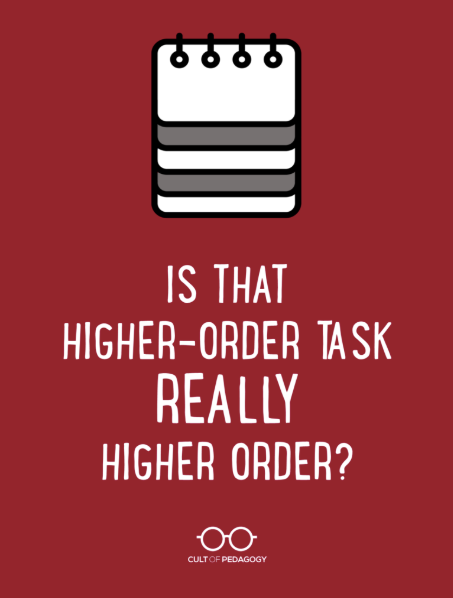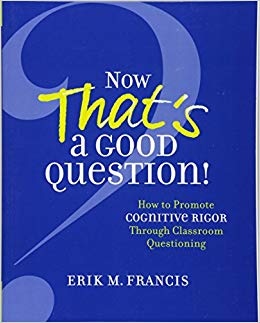Is That Higher-Order Task Really Higher-Order?

It’s kind of a given that most teachers want their students to be doing rigorous, challenging work. Ask any teacher, “Is it your goal to simply have students regurgitate facts in your class?” and every time, the answer will probably be no. And yet, that exact thing is happening more often than we realize. It’s not for lack of trying: For years, teachers have consulted their Bloom’s flip charts and DOK wheels to choose the verbs that are meant to represent higher levels of thinking. In a lot of cases, though, while the right verbs are being used, the tasks they represent aren’t actually on the level teachers think they are.
Wicked Problems & Impossible Projects: 33 Questions at DOK Level 4

Wicked problems and impossible projects are complicated by nature because of the many components, factors, individuals, and resources affected and involved. They promote cognitive rigor by providing students with the opportunity to demonstrate and communicate their knowledge and thinking at the highest level of Bloom’s taxonomy (analyze, evaluate, create) and deepest levels of Webb’s models (strategic and extended thinking). Here are examples of good questions our students can respond to using the deeper knowledge and thinking they have acquired and developed.
Promoting Rigor with Higher Level Prompts

Provides verbs and teacher prompts for each level of thinking.
